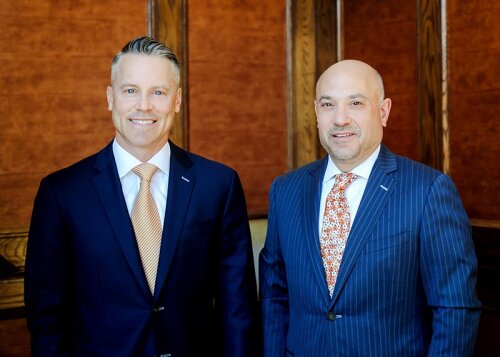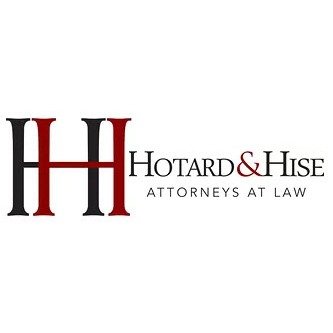Best Criminal Litigation Lawyers in Georgia
Share your needs with us, get contacted by law firms.
Free. Takes 2 min.
Or refine your search by selecting a city:
List of the best lawyers in Georgia, United States
About Criminal Litigation Law in Georgia, United States
Criminal litigation in Georgia involves the legal process through which the state prosecutes individuals or entities accused of committing crimes. The process is governed by Georgia's criminal code and is designed to uphold public safety while ensuring that the accused receives a fair trial. Criminal cases in Georgia range from misdemeanors, such as petty theft or simple battery, to serious felonies like armed robbery, drug trafficking, or homicide. The litigation process typically involves several stages including arraignment, pretrial motions, plea negotiations, trial, and, if necessary, appeal. Each phase is subject to specific legal rules and procedures to protect both the rights of the accused and interests of the public.
Why You May Need a Lawyer
There are several situations where an individual in Georgia may need legal assistance in criminal litigation. If you are arrested or charged with a crime, even a minor offense, a lawyer can help protect your rights and navigate the complexities of the criminal justice system. Legal counsel is particularly crucial in cases involving serious charges which can result in significant fines, imprisonment, or long-term consequences such as a criminal record. Other common scenarios include being under investigation, receiving a summons to appear in court, facing probation violations, or dealing with expungement of criminal records. A lawyer can provide legal advice, negotiate with prosecutors, and advocate on your behalf in court.
Local Laws Overview
Criminal law in Georgia is primarily set forth in the Official Code of Georgia Annotated (OCGA). Some key aspects include the classification of crimes into felonies and misdemeanors, with felonies carrying penalties of more than one year of imprisonment and misdemeanors subject to less severe penalties. Georgia has specific sentencing guidelines, and some crimes carry mandatory minimum sentences. The state enforces strict laws on drug offenses, DUI (driving under the influence), and firearm possession. Additionally, Georgia operates under a "criminal discovery" process that allows both the defense and prosecution to share evidence before trial. The state's criminal statutes also provide for alternatives to incarceration such as probation, diversion programs, and community service. Importantly, Georgia recognizes the right to counsel, meaning that those accused of a crime have the right to legal representation, even if they cannot afford it.
Frequently Asked Questions
What should I do if I am arrested in Georgia?
Stay calm and exercise your right to remain silent. Request a lawyer before answering any questions. Do not resist arrest, and avoid making statements that may be used against you in court.
How are crimes classified in Georgia?
Crimes are generally classified as either misdemeanors or felonies, with felonies being more serious and carrying harsher penalties.
Can I be released on bail in Georgia?
Most individuals charged with a crime are entitled to bail unless the offense is very serious. The judge will consider the severity of the crime and the risk of flight when setting bail.
What happens during a criminal trial in Georgia?
A criminal trial typically includes jury selection, opening statements, presentation of evidence, witness testimony, closing arguments, and the verdict. The accused is presumed innocent until proven guilty beyond a reasonable doubt.
What are my rights if I am charged with a crime?
You have the right to remain silent, the right to a lawyer, the right to a speedy trial, the right to confront witnesses, and the right to be presumed innocent until proven guilty.
Can I negotiate a plea deal in Georgia?
Yes, plea agreements are common in Georgia and may involve pleading guilty to a lesser charge or receiving a reduced sentence in exchange for waiving the right to trial.
What is a preliminary hearing?
A preliminary hearing is a court proceeding where the judge determines if there is enough evidence for the case to proceed to trial. It is an important safeguard for the accused.
How can I expunge my criminal record in Georgia?
Certain offenses may be eligible for record restriction or expungement in Georgia. The process involves filing a petition with the court and meeting eligibility requirements outlined in state law.
Will a conviction affect my future employment?
Yes, a criminal conviction can appear on background checks and negatively impact employment, housing, and educational opportunities. Legal assistance can sometimes help mitigate these effects.
Do I have to speak to the police without a lawyer?
No, you have the right to remain silent and to request a lawyer before answering any questions from law enforcement.
Additional Resources
If you need more information or assistance, several resources are available in Georgia:
- Georgia Public Defender Council
- State Bar of Georgia
- Georgia Department of Law
- Local Legal Aid Organizations and Clinics
- Clerk of the Superior Court in your county
- Georgia Legal Services Program
- Local law libraries and legal self-help centers
Next Steps
If you are facing criminal charges or have concerns about your legal rights in Georgia, it is important to seek legal counsel as soon as possible. Gather all relevant documents, refrain from discussing your case except with your attorney, and carefully follow any instructions provided by the court or your lawyer. Contact a qualified attorney who is experienced in Georgia criminal law to evaluate your case and advise you on the best course of action. If you cannot afford a private attorney, request a public defender at your first court appearance. Always attend all scheduled court dates and comply with any conditions set by the court. Taking prompt action and obtaining professional advice is essential to protecting your interests in any criminal litigation matter.
Lawzana helps you find the best lawyers and law firms in Georgia through a curated and pre-screened list of qualified legal professionals. Our platform offers rankings and detailed profiles of attorneys and law firms, allowing you to compare based on practice areas, including Criminal Litigation, experience, and client feedback.
Each profile includes a description of the firm's areas of practice, client reviews, team members and partners, year of establishment, spoken languages, office locations, contact information, social media presence, and any published articles or resources. Most firms on our platform speak English and are experienced in both local and international legal matters.
Get a quote from top-rated law firms in Georgia, United States — quickly, securely, and without unnecessary hassle.
Disclaimer:
The information provided on this page is for general informational purposes only and does not constitute legal advice. While we strive to ensure the accuracy and relevance of the content, legal information may change over time, and interpretations of the law can vary. You should always consult with a qualified legal professional for advice specific to your situation.
We disclaim all liability for actions taken or not taken based on the content of this page. If you believe any information is incorrect or outdated, please contact us, and we will review and update it where appropriate.
Browse criminal litigation law firms by city in Georgia
Refine your search by selecting a city.














